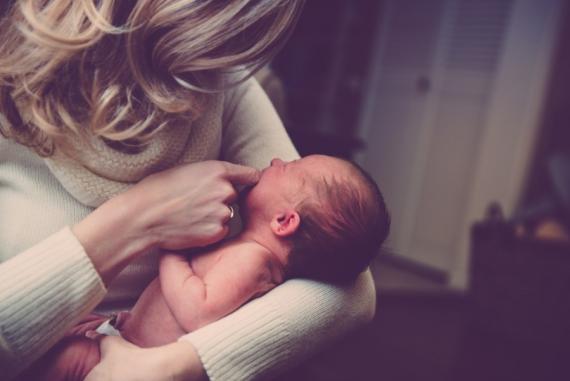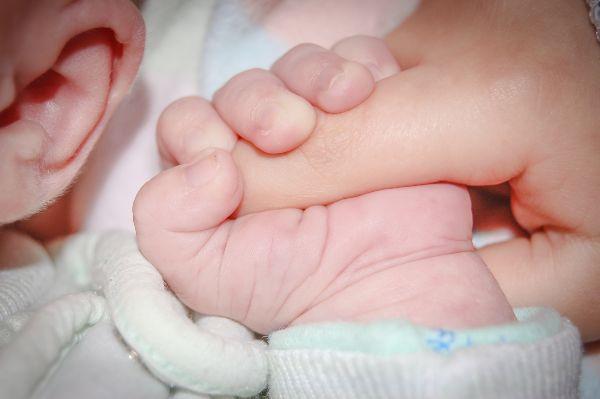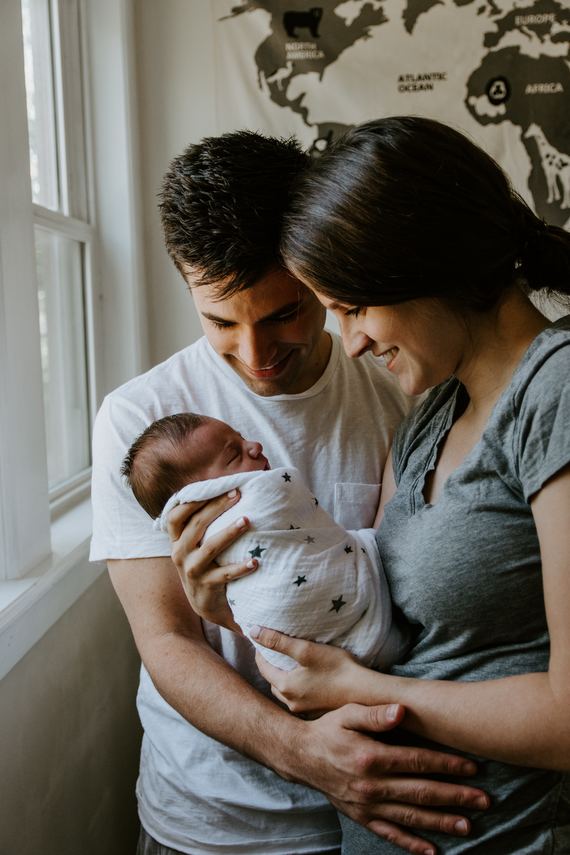Let's talk about simple changes that can be made to help your baby, and let's face it you, have better quality, more consolidated, restorative sleep. Sleep that will help them meet their developmental milestones and thrive! Sometimes, all it will take are simple tweaks to see huge improvements.
Sleep Environment
Ensuring that where your baby sleeps is supportive of healthy sleep and is a very important, easy change to make. A dark room is key when it comes to success on the sleep front. This will support melatonin production – the sleepy hormone – and help your baby initiate and maintain sleep better and for longer.
It is also important that your baby is sleeping in a safe sleep environment. Under safe sleep guidelines, your baby should sleep on their backs, in an independent flat sleep surface with no loose blankets or bedding. For newborns, I recommend Moses baskets or cribs for all sleep including naps. When your child is ready to transition them to a cot and allow this to become their regular sleep environment.
Ensure the room your baby is sleeping is in a quiet location in your home. It is impossible to expect your baby to nap well and for long periods in a busy kitchen. As such choose somewhere you can easily check on them and use a video monitor. I support the use of white noise to four months of age but beyond that, I feel it’s important for your child to get used to general household noise while sleeping.
The room they sleep in should be warm but not too warm – somewhere between 18 and 21 degrees is recommended.
Timings
I refer to these constantly when working directly with parents.
This is where getting to know your baby and understanding their sleep pattern is important. Having the timings right will bring about better naps and a better nights sleep. They will be less overtired, will find it easier to settle & generally sleep for longer periods.
These wake periods change as your baby develops. For example, a 6-month-old usually will be able to stay awake 2-2.5 hours between sleep whereas a 12-month-old would be 3-3.5 hours. With every child, it is different however and sometimes morning wakeful periods and afternoon wakeful periods differ. So, get to know your baby and what their period is.
Watch their sleep cues and catch them so as not to miss the window. In doing this you will experience better sleep all round.

Even a child who has super sleep skills will not sleep if they are hungry. So it is important to ensure you are getting the right balance of milk, and when they are weaning, solids into their days.
I very much promote waking newborn and small babies from naps when a feed is due. That way you are ensuring that nutritional needs are being met during the day and as such, they will be less likely to wake due to hunger at night.
Practising a feed, play, sleep cycle will help you put structure on this from birth. I also recommend that once the supply is established, breastfeeding mums move from demand led feeding to structured feeding.
From 6 months onwards the introduction of solids is very important. Get the balance right by offering three meals a day once they are ready. Ensure a protein meal is offered at lunchtime so that your baby is full going down for their long nap of the day. When they are older and the long nap is established that protein meal can be alternated through the day. Many consultants feel that protein offered at the evening meal is essential however I prefer that this happens once the baby is older as protein is harder to digest you don’t want little stomach issues cropping up at bedtime or during the night!
Bed Time Routine
This can be underestimated in terms of its importance in improving sleep. Children can get very stimulated in the evening time even though their drive for sleep can be high. This second wind style behaviour can also be a sign of overtiredness.
I recommend starting the bedtime routine just after your child has had their tea at approx 5 pm. Start with a bath if necessary. Then head back into a brightly lit living space for the last milk feed of the day - this needs to be one hour prior to bedtime.
In the hour prior to sleep times avoid stimulating activities and look to quiet ones. Turn off the television in the hour prior to sleep being desired -this also applies to iPads, tablets and phones. Blue light technology is in EVERYTHING with a screen. It is highly stimulating to the brain and as yet the impact it has on sleep is not fully studied or understood. It is best to avoid it to ensure your little one gets the best quality sleep possible.
Once you get to approx 20 mins prior to bed go to your child's bedroom. Dim down the lights and draw the curtains. Read a few nice books and start quietly chatting. Then get them into their sleeping bag, turn off the light, kiss them goodnight and pop them into their cot and leave their room.
Use the same routine every day when it comes to winding down for bedtime and naps. This will give your child all the signals that bedtime is coming and act as a cue to sleep. Read books, have quiet story time or floor play – just ensure that it is something that doesn’t give your child that second wind you want to avoid.

Promote Self Soothing
So many parents tell me that their baby was a super sleeper prior to 4 months. Then the dreaded 4 months sleep regression hits and boom, no sleep for anyone. Really what is happening is that your baby’s circadian rhythms are forming. These are their sleep cycles and are not present in babies prior to this time. As such it is the perfect time to help your baby learn how to self soothe and grasp the skills to independently. Start them on the path of the gift to sleep.
If you had been rocking, patting, holding and feeding to sleep prior to this, which let's face it we all need to do to survive the newborn stage, I would encourage you to start fading these inputs out at this time so that your child is given some space and independence to fall asleep themselves. I use a technique with this age bracket that provides reassurance and support while they are learning their new skills.
By continuing to have a big input into your child getting to sleep it is very likely that you will have to continue to do this at every sleep cycle as they will be dependent on you, rather than being able to settle themselves.
This is perhaps why your child wakes after 45 minutes every nap and every 2-4 hours at night. These are their cycles of sleep and if you are having this big input into their sleep they will continue to need that input every time they come into light sleep and wake.
If they gain some self-soothing skills they are more capable of going through the sleep cycles and should maintain sleep for longer.
Importance of Napping
I very much promote structure when it comes to getting the most out of your baby’s sleep. Babies thrive on a routine day to day.
It supports their growth and development and ensures they are getting the right balance of sleep and food they need to thrive.
When it comes to naps balance is key. I recommend that you keep a morning nap shortest to support a longer afternoon nap as this is when the drive to sleep is higher in their sleep-wake cycles.
This balance will also help avoid early morning waking and promote consolidated sleep throughout the night.
Balance in naps will also help avoid overtiredness which is a killer when it comes to sleep. An overtired baby will find it hard to get to and remain asleep. A rested baby will sleep for longer and have more restorative sleep.
The old wives tale of keeping them up for longer and keep all naps short is a total myth! Working on landing naps and keeping your baby as rested as possible is one of the keys to success.
Don’t fret if you are finding this step hard – landing the naps can be the last piece of the jigsaw puzzle to come together.

Consistency
If you are experiencing what you feel are issues around your child's sleep and wish to solve them then consistency from you is key. In order to see positive change you will need to give things a constructive period of time to see the benefit – I use two weeks as a rule of thumb on the short scale but four weeks for engrained issues.
Sleep also needs to be taken with a long term view. Nothing is a quick fix. You will need to be consistent in the messages you give your child around sleep in the long term, that way you safeguard it.
In making sleep a priority in your household you are giving The Gift of Sleep.
Erica Hargaden is a certified Paediatric Sleep Consultant, mum-of-three and runs Babogue Paediatric Sleep Solutions to help bring the gift of sleep to as many families.
For more information check out her Instagram @babogue_sleep see www.babogue.ie,, email erica@babogue.ie or call +353 86 8260887.








